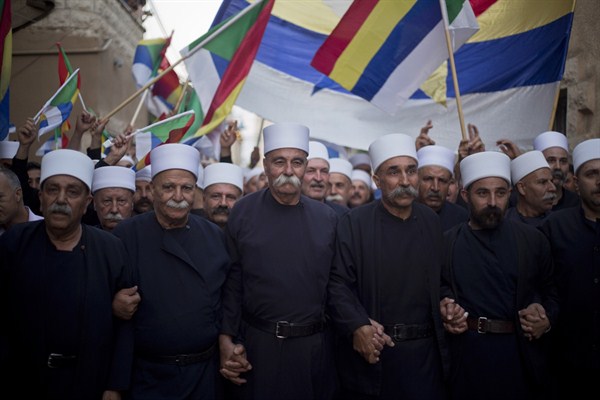In 1925, Syrians rose up against their French colonial authorities. The revolt started in southern Syria, in the rugged homeland of the Druze, an esoteric religious sect with roots in Shiite Islam. Druze rebels near the town of Suwayda shot down a French surveillance plane, and before long a full-scale rebellion spread to Damascus and farther north, led by a Druze leader, Sultan al-Atrash, who became a nationalist hero in Syria. Nearly 90 years later, the Syrian uprising that began in 2011 also got its spark in southern Syrian—not in the Druze homeland, but in the dusty border town of Deraa, some 30 miles west of Suwayda near Jordan. After young students were detained for writing anti-regime graffiti on their school, Deraa erupted in protest.
In the over four years of brutal civil war since then, Syria’s Druze have tried to remain on the sidelines, though many still back Syrian President Bashar al-Assad’s government, like other religious minorities in Syria who fear hardline Sunni groups. After all, in their rocky corner of Syria, known as Jabal al-Druze, or the Mountain of the Druze, “the Druze have managed to stave off Sunni persecution and central government for centuries,” according to the Carnegie Endowment’s Aron Lund.
Now, with Assad’s forces losing more territory in southern Syria and Sunni rebels, including the al-Qaida-affiliated Nusra Front, advancing, the Druze find themselves caught between sides, trying as ever to carve out space for their own protection.

